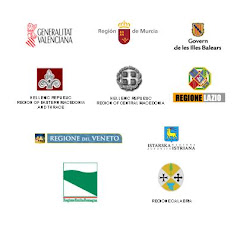 The system is named submariver®. Its principle consists in taking of fresh water from river mouths, which can be, at least partially, abstracted just upstream the salt wedge without significant impact (no more downstream issues). It is then transported by underwater pipes parallel to the coast (across the sea for islands).
The system is named submariver®. Its principle consists in taking of fresh water from river mouths, which can be, at least partially, abstracted just upstream the salt wedge without significant impact (no more downstream issues). It is then transported by underwater pipes parallel to the coast (across the sea for islands). The system is in phase of development, and could be implemented in pilot projects. The company is in contact with several regional and state authorities.
This patented system is structured around a special and very flexible pipe that adapts to the seabed profile without preparation of the ground. It is laid on the sea bottom (typically at 200m depth) and ballasted. At destination in coastal areas, it is distributed through the local network after usage-specific treatment.
This system can also be used to transport farther away water flowing out of sewage treatment plants in coastal areas that pour their treated water into the sea and where there is no local reuse demand. Usually, these flows are much smaller than those available at river mouths, but they should nevertheless be considered as well, albeit cautiously in light of their real post treatment quality.
According to the company, the main characteristics of this system are as follows:
1. Its prices are low (0.1 – 0.3€/m3 in most cases). Delivery of fresh water at an economical price satisfactorily meets large demands, especially agricultural uses.
2. Its energy consumption is less than 0.2kWh/m3 in most cases, which is about 5% of the energy necessary for seawater desalination.
3. Its construction can be conducted in 1 to 2 years in most cases as the laying pace is about 2km per day. An over investment of 15% at the outset typically brings the flexibility to meet a 50% increase in demand over time.
4. It is simple and sturdy which allows operation by workforce with lower qualification, without external technological dependence.
A representative of the company, Mr Felix Bogliolo, presented the device in the last meeting of Wateregio last July.
 Either the seminar was a big success or the room was too small, but the participants report that the place was packed
Either the seminar was a big success or the room was too small, but the participants report that the place was packed 







